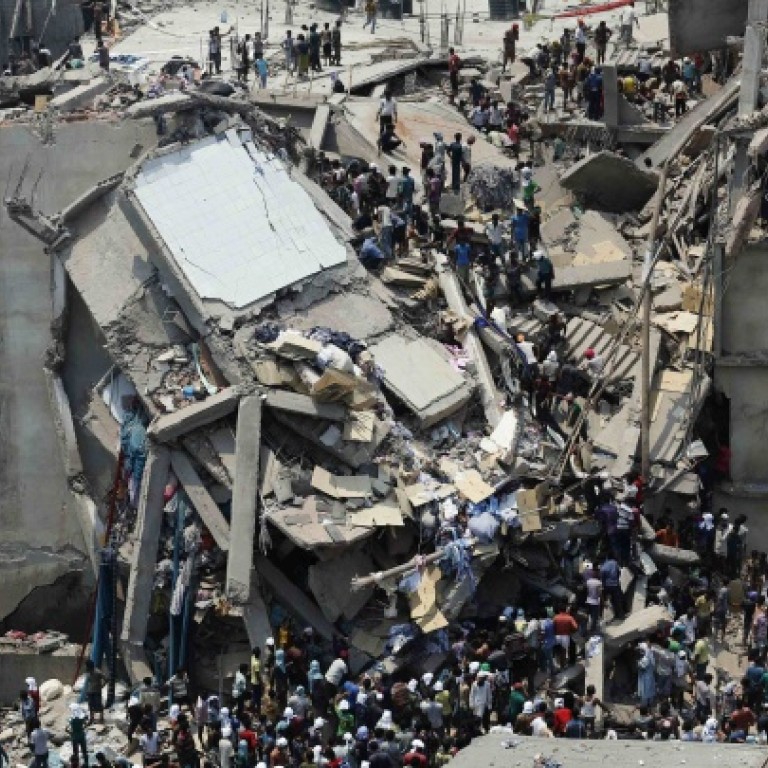
Workers pay the price for our bargains
The blame game after the horrific Dhaka garment factory accident is dragging on and almost everyone linked to this sordid episode is tainted by some degree of guilt.
The latest government report blames the owner for building an eight-storey factory with inferior materials on swamp land. But the fact such a place was allowed to function for more than five years suggests something way beyond just a crooked factory owner. It would be equally naive to imagine the manufacturers who contracted these factories were totally in the dark about how the system gets manipulated in a city like Dhaka.
On the other side of the spectrum, rights organisers are pressing multinational brands to sign agreements that will force them to make sure workers in factories they contract to are guaranteed safety and better pay. Some manufacturers have agreed while others baulk at these efforts, citing many grey areas in the deal.
While the debate rages on, some groups are advocating consumers boycott companies that exploit such situations. While calls from such high moral ground sound noble, the fact is a product that is cheaper than its competitor will always triumph in the market. We all love a bargain.
The manufacturers of cheap T-shirts know this. They also face the added dilemma of trying to rake in more profit or face dissatisfaction from shareholders. So under pressure to increase margins, they continue to push factory owners for a better rate.
If the factory rates are not low, they are forced to locate to countries that will give them what they want. The growth of Bangladesh as a major garment-making hub, drawing away manufacturers from countries like China, is evidence of that.
As a buyer you want good products that are cheap, but as a shareholder you want the companies to make more profit than before. This is the flip side of globalisation, whose advocates rightly point out it has lifted millions out of poverty. But it has also condemned millions into factories that you and I would not want to work in. They are there because you and I, in an indirect way, sent them there.
Just look at the "made in" tag on your clothes or on the back of your mobile phone if you don't believe me.

